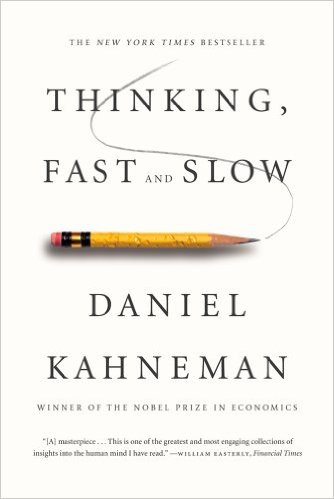|
“You’re a very positive person.”
“He has a lot of negative traits.” “You have to weigh the positive and the negative aspects.” In English, we use the words “positive” and “negative” all the time. Colloquially, these words often mean “good” and “bad.” But in psychology, that’s not what they mean. Instead, “positive” means you add something, and “negative” means you take something away. Which means that when you use the terms “positive reinforcement” and “negative reinforcement,” there’s a decent chance you’re using them incorrectly -- and I cringe just a little on the inside. So let’s set the record straight. Positive reinforcement means you reinforce a desired behavior by adding a reward. An example of this would be a teacher telling her class, “If you pass the spelling test, you get an extra five minutes of recess!” Negative reinforcement happens when you reinforce a desired behavior by removing something undesirable. For example, the teacher tells her class, “If you pass the spelling test, you don’t have to clean the chalkboards after school.” What most people mean when they say “negative reinforcement” is actually “positive punishment,” or adding (“positive”) something bad (“punishment”) to disincentivize an undesirable behavior. For example, a teacher uses positive punishment when she tells her class, “If you don’t stop fooling around, I'll give you a detention.” But sometimes, when people say “negative reinforcement,” they actually mean “negative punishment” -- or taking away (“negative”) something good (“punishment”) to discourage a certain behavior. For example, the teacher telling her class, “If you don’t stop fooling around, you don’t get to go to recess.” So now you understand the terminology -- and you’re probably wondering, Do any of these methods work better than the others? The answer is... It's hard to tell. And.. it depends.
Psychologists have been debating this very topic for over 100 years, with differing results. But new research is shedding some interesting light.
For example, according to a study by Dr. Eveline Crone and colleagues, which was published in the Journal of Neuroscience (2008), children age 8-9 respond better to positive reinforcement ("Good job!" "Well done!"), and disproportionately more inaccurately to negative feedback (i.e., positive punishment). Meanwhile, the brains of adults, as well as children age 11-12, respond better to negative feedback. In the study, researchers gave participants from the 8-9, 11-12, and 18-25 year-old age groups a computer task while they lay in the MRI scanner. If they did the task correctly, a tick appeared on the screen. Otherwise, a cross appeared. The MRI scans showed which parts of the brain were activated, and improvements in perormance were measured across trials. In younger children, performance improved substantially more when the feedback was positive. The opposite proved true in the case of older children and young adults. For them, negative feedback improved performance more than positive feedback. There were also differences in brain activity. To quote the paper: Dorsolateral prefrontal cortex and superior parietal cortex were more active after negative feedback for adults, but after positive feedback for children (8–9 years of age). For 11- to 13-year-olds, these regions did not show differential feedback sensitivity, suggesting that the transition occurs around this age. Pre-supplementary motor area/anterior cingulate cortex, in contrast, was more active after negative feedback in both 11- to 13-year-olds and adults, but not 8- to 9-year-olds. One of the interesting aspects of this study is the three-way divide. Most studies would have only looked at children vs. adults. Indeed, a difference between kids who were only four years apart was not something Crone et al. expected. However, it remains unclear if differences in brain activity were caused by changes in the brain, or changes in cognition. It could be a simple matter of maturity -- "you did something wrong" is more complicated to understand than "you did something right." Praise/reward tells you to keep doing what you're doing; criticism/punishment tells you to figure out what you did wrong, and change it. Moreover, responding to negative feedback might help students avoid the confirmation bias and lead to better reasoning. Another study out of Washington University in St. Louis found that losses (punishments) had a measured behavioral impact two to three times greater than gains (rewards). The study divided participants (Ps) into different conditions. In one condition, Ps listened to a series of clicking noises and indicated whether they heard more clicks in the left or right ear. In another condition, Ps watched flashes of light on a screen and indicated whether they saw more flashes on the right or left side. The number of clicks and flashes were randomized and often very close together, making the task challenging. The students were often uncertain of the correct response. When Ps made a choice, the researchers randomly displayed a token for 5, 10, 15, 20 or 25 cents that was given as a reward for the "correct" answer -- or taken away as a punishment for an "incorrect" answer. As expected, Ps tended to repeat the previous choice when rewarded -- and that tendency grew stronger as the reward increased. When punished, though, Ps strongly avoided the previous choice. However, unlike the response to a reward, no matter how large a sum was lost, the students showed a strong, consistent tendency to avoid the previous choice. This was true in both conditions, demonstrating that the stimulus itself didn’t matter. As any economist could probably tell you, it's intuitive to think that a reward of 25 cents would have the same magnitude of effect as losing 25 cents... but humans are loss averse. We don't make rational decisions -- we make highly emotional ones. This study is interesting because most studies that focus on the effects of rewards and punishments on behavior are complex -- and it's difficult to separately evaluate the distinct effects of rewards and punishments. But because the stimulus in this study — clicks or flashes — was random, the researchers were able to more easily pinpoint the effect of a reward or punishment on the subsequent behavior. In other words: fines may be more effective at creating behavioral change than bribes. Pretty cool, huh? Plus, it's always nice to have an example of beliefs that feel good ("rewards work better than punishments")... that are actually wrong. If you want to learn more about learning and cognition, the book you've got to read is Daniel Kahneman's Thinking, Fast and Slow. It's a bestseller for a reason.
6 Comments
Zeph
3/17/2017 05:59:32 pm
A few points.
Reply
Zeph
3/17/2017 06:27:14 pm
2) The following is reflection, not psych-lab research, and it may or may not have relevance.
Reply
Zeph
3/17/2017 06:38:34 pm
Oops, part of my first comment didn't get recorded. so:
Reply
Zeph
3/17/2017 06:45:51 pm
And just briefly - all this ties into my philosophy on Political Correctness.
Reply
Phyr
9/16/2023 07:05:51 pm
Well, that was an interesting read. It does appear that even interdisciplinary nomenclature on what is colloquial is garbled and complex! We sure could use some refinement. Glad to hear your use of psychological principles of a lab environment mapped onto real life. That's what its all about, dude. I tried to read Freud's completed works but it was just him fantastically musing on falling asleep for 200 pages, so then I fell asleep. Knockout writer that guy, shame he gets the accolade of father of psychology because he's certainly a contender for top 10 literary greats.
Reply
I know by using the power of positive thinking one can get anything he wants in his life. But another fact of the matter about this positive thinking is, sometimes it can also backfire. I don't mean to say that, you need to become a psychologist to avail the actual benefits of positive thinking. No, absolutely not. I mean to say that you should not go into the state of depression while dreaming about a heavenly, grinning future. 'The way you think, you will attract the things accordingly'- this is nothing but the law of attraction. So, you need to be careful while deciding to change your life by the virtue of positive thinking. Better, you should hire a life mentor who can give you the right kind of motivation that you really want to make the necessary transition.
Reply
Leave a Reply. |
About the Author

Eva is a content specialist with a passion for play, travel... and a little bit of girl power. Read more >
Want to support The Happy Talent? CLICK HERE!
Or Find me on Patreon!
What's Popular on The Happy Talent:
Trending in Dating and Relationships:
What's Popular in Science: Playfulness and Leisure Skills:
Popular in Psychology and Social Skills:
Categories
All
|




























 RSS Feed
RSS Feed